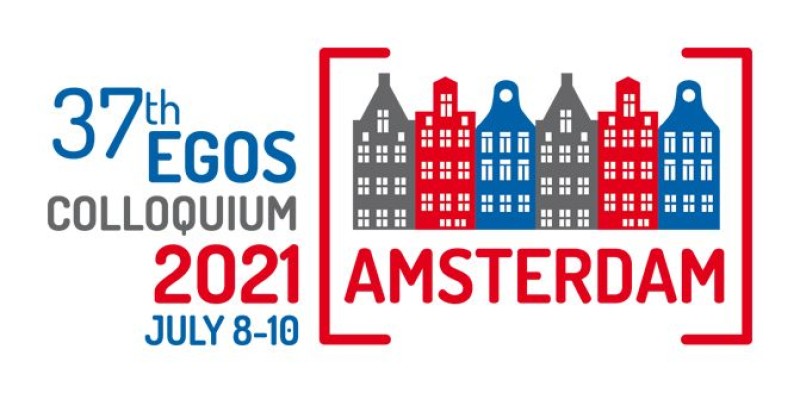Sub-theme 79: Violence and Organization
Call for Papers
Violence is a pervasive and ubiquitous way of organizing economic and social activities (Vaccaro & Palazzo, 2015).
It can take several shapes and forms: from legitimate to illegitimate, explicit to implicit as well as symbolic and structural
to physical violence (Kilby, 2013). Classic organization theory has pointed to the role of violence, including physical violence,
in attaining compliance to rules within organizations as well as to the existence of coercive organizations that primarily
rely on such means and their societal significance (Blau & Scott 1962; Etzioni, 1961;). Returning to this insight, this
sub-theme focuses on the ways in which violence constitutes a fundamental aspect of organization and organizing (Stokes &
Gabriel, 2010).
Despite the theoretical foundations, violence occupies a strange ‘place’ in contemporary
organization studies. It has been theoretically and empirically marginalized, and while a present aspect in many studies,
it has also remained strangely impalpable – absent (Costas & Grey, 2018). Following Hearn (1994), organization studies
research has a tendency to sanitize violence and use vocabulary like power, control or authority instead. Cooke (2003) further
indicates that a modernist narrative shapes our field, which depicts contemporary Western societies as rather free of violent
practices of management and organization. Indeed, Elias’ (1978) famously saw modernity as a Civilizing Process, through
which violence has gradually disappeared from public life to be “stored behind the scenes of everyday life” (ibid.: 450).
Importantly, this does not mean that violence has entirely disappeared. Rather, it has become less visible than in pre-modern
times.
While contemporary research in organization studies is indicative of the empirical presence of violence
in and around organizations, studies rarely confront the violence they are dealing with conceptually. The dynamic of the ‘absent
presence’ (Costas & Grey, 2018) becomes apparent, amongst other things, in the study of the management of modern forms
of slavery, which regard slavery as “an attempt to underprice a key resource (labor) through illegitimate means” (Crane, 2013:
51), or in research on worker-client relationships, which shows how workers and management seek to downplay violence by making
it invisible (Baines & Cunningham, 2011; Bishop et al., 2005). Violence seems to be a ‘spectre’ (Ward et al., 2019) that
haunts contemporary organizations.
On a societal level, the destructive potential of contemporary globalized
business regimes has been pointed out (Banerjee, 2008), especially in light of the ‘privatization’ of violence whereby private
firms are involved in paramilitaries, trafficking and mafia-like organizing (Wood & Wright, 2015). Yet, the ways in which
these firms challenge, erode and even displace the ‘state monopoly on violence’ (Weber, 1978), which has strategic relevance
for various socio-economic agents, such as firms and civic organizations (Wulf, 2011), has received scant theoretical attention.
Hence, this stream invites papers that engage with, and thus bring to light, violence in organization and organizing.
We invite contributions that engage with violence and organization from theoretical and/ or empirical perspectives. We are
interested in violence within organizations, violent organizations, the role of violence in globalized business regimes (Banerjee,
2008), the ‘privatisation’ of violence (Godfrey et al., 2013) and the relation of socio-economic actors to the ‘state monopoly
on violence’. We encourage submissions that explore:
Aspects of state violence and non-state forms of violence and their differentiation, especially in industrialized societies
Challenges to state monopolized forms of violence as well as the ‘privatisation’ of violence in different organizational and institutional settings
Extreme forms of violence and their significance for management and organization
Subtle forms of violence that impact management and organization but often go unnoticed or are made invisible
Non-western perspectives on violence and organization
Methodological and empirical approaches in studying violence in organizations and organizing as well as violent organizations
References
- Baines, D., & Cunningham, I. (2011): “‘White knuckle care work’: Violence, gender and n ew public management in the voluntary sector.” Work, Employment and Society, 25 (4), 760–776.
- Banerjee, S. B. (2008): “Necrocapitalism.” Organization Studies, 29 (12), 1541–1563.
- Bishop, V., Korcynski, M., & Cohen, L. (2005): “The invisibility of violence: constructing violence out of the job centre workplace in the UK.” Work, Employment & Society, 19 (3), 583–602.
- Blau, P.M., Scott, W.R. (1962): Formal Organizations: A Comparative Approach. Oxford: Chandler.
- Costas, J., & Grey, C. (2018): “Violence and organization studies.” Organization Studies, 40 (10), 1573–1586.
- Crane, A. (2013): “Modern slavery as a management practice: Exploring the conditions and capabilities for human exploitation.” Academy of Management Review, 38 (1), 49–69.
- Elias, N. (1978): The Civilizing Process. Oxford: Blackwell.
- Etzioni, A. (1961): A Comparative Analysis of Complex Organizations: On Power, Involvement, and Their Correlates. New York: Free Press of Glencoe.
- Godfrey, R., Brewis, J., Grady, J., & Grocott, C. (2013): “The private military industry and neoliberal imperialism: Mapping the terrain.” Organization, 21 (1), 106–125.
- Hearn, J. (1994): “The organization(s) of violence. Men, gender relations, organizations, and violences.” Human Relations, 44 (6), 731–754.
- Kilby, J. (2013): “Introduction to special issue: Theorizing violence.” European Journal of Social Theory, 16 (3), 261–272.
- Schinkel, W. (2013): “Regimes of violence and the Trias Violentiae.” European Journal of Social Theory, 16 (3), 310–325.
- Stokes, P., & Gabriel, Y. (2010): “Engaging with genocide: The challenge for organization and management studies.” Organization, 17 (4), 461–480.
- Vaccaro, A., & Palazzo, G. (2015): “Values against violence: Institutional change in societies dominated by organized crime.” Academy of Management Journal, 58 (4), 1075–1101.
- Ward, J., McMurray, R., & Sutcliffe, S. (2019): “Working at the edge: Emotional labour in the spectre of violence.” Gender, Work and Organization, 22 (1), 1–16.
- Weber, M. (1978): Economy and Society: An Outline of Interpretive Sociology. Berkely: University of California Press.
- Wood, G., & Wright, M. (2015): “Corporations and new statism: Trends and research priorities.” Academy of Management Perspectives, 29 (2), 271–286.
- Wulf, H. “The privatization of violence: A challenge to state-building and the monopoly on force. The Brown Journal of World Affairs, 18(1) 137–149.


